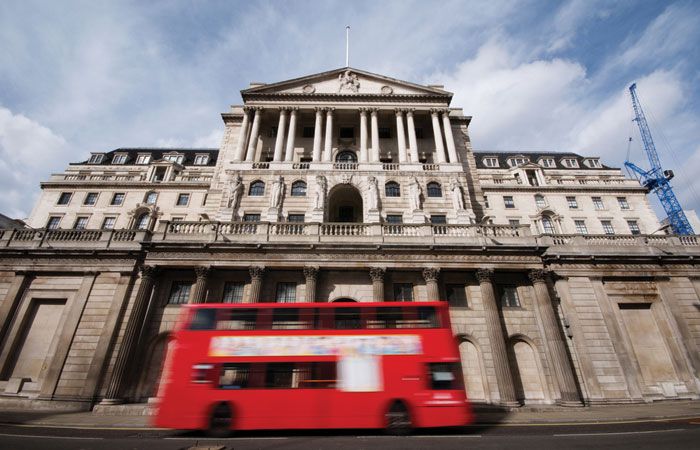
The latest Bank of England (BoE) Inflation Attitudes Survey found that 73% of respondents said that interest rates had risen over the past 12 months, compared with 66% in May.
The survey, which took place between 5 and 8 August across the UK, reveals only 6% of respondents thought that interest rates on things such as mortgages, bank loans and savings had fallen over the past 12 months, compared with 7% in May.
When asked about the future path of interest rates, 11% said they expected rates to stay about the same over the next twelve months, compared with 15% in May, while 75% of respondents expected rates to rise over the next 12 months, up from 70% in May.
Asked what would be ‘best for the economy’, 30% thought rates should ‘go up’, up from 28% in May, 24% of respondents thought that interest rates should ‘go down’, an increase from 22% and 26% thought interest rates should ‘stay where they are’, down from 28%.
Respondents were asked to assess the way the BoE is ‘doing its job to set interest rates to control inflation’. The net satisfaction balance, the proportion satisfied minus the proportion dissatisfied, was -7%, down from -3% in May 2022.
The BoE increased the base rate by 50 basis points to 1.75% on 4 August. The increase marked the highest rate rise since 1995, and the greatest increase since the central bank was given control of the crucial decision.
Public expectations for inflation for the coming year have grown from 6.1% in May to 7.6% in September
It also found that the public believes inflation will continue to remain high beyond 2023 with respondents giving a median answer of 3.1%, which is lower than the 3.4% figure in May.
By a margin of 66% to 10%, survey respondents suggested that the economy would end up weaker rather than stronger if prices started to rise faster, compared with 66% to 9% in May 2022.
It also found that 32% of respondents thought the inflation target was ‘about right’, up from 31% in May 2022.
The proportions saying the target was ‘too high’ or ‘too low’ were 31% and 22% respectively.
Earlier this week, the Office for National Statistics (ONS) announced that inflation in the UK was 9.9% in August, a slight decline from July’s 10.1% figure.
Food and non-alcoholic beverages made the largest upward contribution to the monthly rates in August while falling prices for motor fuels resulted in a large offsetting downward contribution.
Interactive Investor senior personal finance analyst Myron Jobson says: “It is difficult for many consumers to look beyond the impact rising prices are having on their finances today. Inflation is hitting everyday expenditure the most, from the amount we pay for gas and electricity to the food we put on our tables.”
“It is interesting to note that the survey found that almost a third of respondents said it would be better for them if interest rates were to ‘go up’, but a quarter of the sample said the opposite, indicating that cost of living experiences are polarised.”
“The results turn up the heat on the Monetary Policy Committee, which is expected to bump interest rates further at its meeting next week.”
The MPC postponed its meeting and subsequent interest rate decision last week due to the passing of Her Majesty Queen Elizabeth II.



